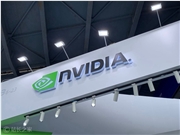Against the backdrop of rapid advancements in artificial technology, Intel's Gaudi AI accelerator faces significant challenges. Recently, during Intel's Q3 2024 earnings call, CEO Pat Gelsinger acknowledged that the company will not achieve its projected $500 million revenue target for Gaudi this year.
He admitted, "We will not be able to meet the $500 million revenue target for 2024." Despite Intel's recent launch of the new Gaudi3 accelerator, Gelsinger noted that the overall adoption rate of Gaudi products has been slower than expected, primarily due to the transition from Gaudi2 to Gaudi3 and the usability of the software, which has impacted user acceptance.

Despite missing the target, Gelsinger remains optimistic about market prospects. He stated that there is still strong demand for high-performance solutions based on open standards, and Intel will continue to enhance the value proposition of Gaudi. Gelsinger mentioned during the meeting that the industry's significant investment in AI chips is currently focused on training cloud AI models. He said, "Training is about creating weather models, not using them." This seems to imply that integrating AI into all chips, not just those in cloud computing, may become more important in the future.
According to the latest earnings report, Intel's total revenue for the quarter was $13.3 billion, a 6% decrease year-over-year but an improvement from the previous quarter. Nevertheless, Intel still faces a substantial loss of $1.66 billion. This loss is mainly due to a $1.85 billion impairment and restructuring charge, part of Intel's strategic adjustments to improve profitability.
The company has previously announced a $1 billion cost-cutting plan and laid off over 15,000 employees. Additionally, Intel detailed structural adjustments within the company in its earnings report, including integrating the edge computing business into the Client Computing Group responsible for desktop and laptop chips, and merging the software team into the core business divisions. Gelsinger emphasized that Intel will focus on fewer projects, with the primary goal of maximizing the value of its x86 architecture in the client, edge, and data center markets.
Key Points:
🌐 Intel's Gaudi AI accelerator failed to meet this year's revenue target, with expected revenue below $500 million.
📉 The company's revenue for the past quarter was $13.3 billion, but it faces a significant loss of $1.66 billion.
🔄 Intel is undergoing structural adjustments to enhance future profitability and market competitiveness.










